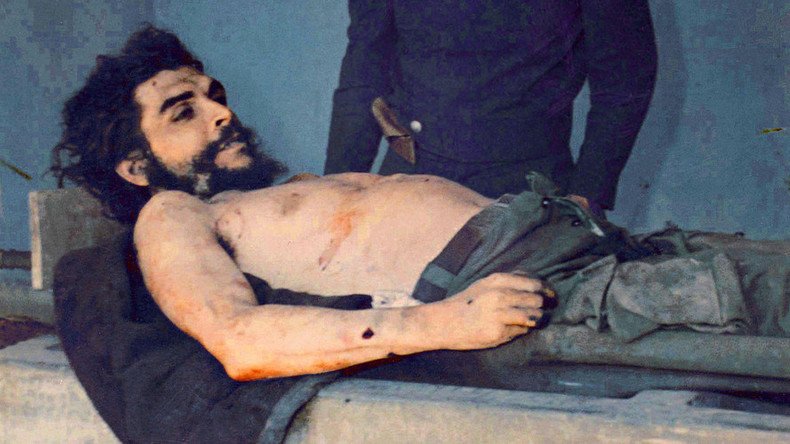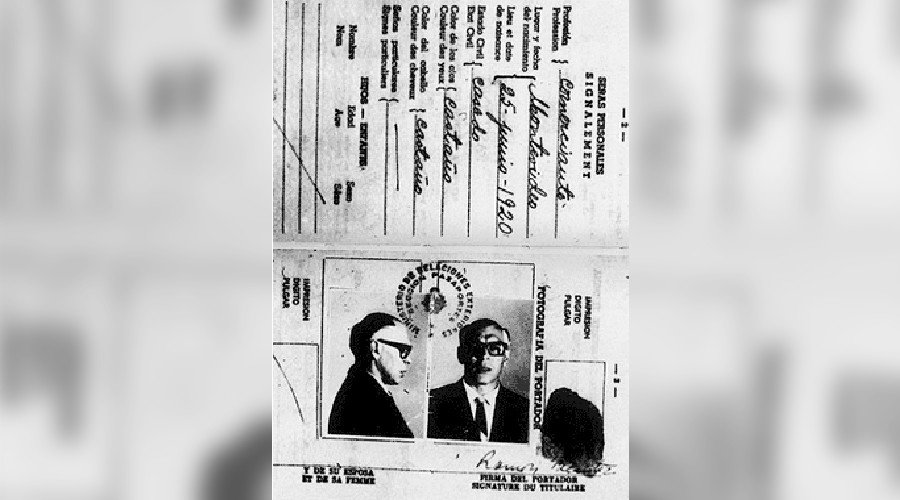Marxist hero & icon of commercialism: Che Guevara’s split legacy

Che Guevara’s execution in a Bolivian schoolhouse 50 years ago had unforeseen consequences. It copper-fastened his status as the poster boy of revolution but also ensured his image would be placed on merchandise such as tea towels and cigarette packets.
WATCH RTD documentary on Che Guevara’s last days in Bolivia
Jay Cantor, author of ‘The Death of Che Guevara,’ describes the commodification of the Marxist revolutionary as one of the great ironies surrounding the guerilla leader.
“You can buy t-shirts with Che on them. There’s probably Che cologne for all I know. The co-opting of every kind of rebellion by commodification is astounding. The only way to overcome that co-optation is to remember what it was he fought for,” Cantor told RT.com.
The role of Ernesto Guevara – or Che as he was called by his comrades – in the overthrow of General Batista’s dictatorship in Cuba in 1959 brought him infamy. But it’s his failure to replicate that success when it came to Bolivia that solidified his place in history as a leftist martyr.
His last months through 1966 and 1967 are chronicled in his own diary as he goes from describing his rebel force as ‘invincible superhumans’ to witnessing his men being gradually picked off by Bolivian forces.
Bolivia
After weeks of digging caves in the hills between Sucre and Vallegrande, Bolivia, Guevara gave military assignments to his band of guerillas. He had earlier arrived in the country disguised as a balding, clean-shaven businessman named Adolfo Gonzalez.

Already a major thorn in the side of his neo-colonial enemies, Guevara was ready to bring his form of revolution to South America – but had just 12 men with whom to do it. The date was December 12, 1966. Less than a year later Guevara would be dead – captured and executed by US-backed Bolivian forces in a makeshift cell at a La Higuera village school.
Che’s legacy
Cantor, who spent 15 years researching his life, deems Guevara a complex historical figure, capable of great compassion but also cold violence – a duality shown in his lack of compunction for executing betrayers, while not having the heart to attack enemy soldiers that seemed to be sleeping.
“What made him interesting to me is that he was not just one thing. He was a complicated character,” Cantor says.
“Guevara was somebody who said that a revolutionary was guided by great feelings of love and he was also somebody who said ‘we have to make ourselves cold, selective, violent killing machines.’ I believe that both of those were aspects of his character.”
“He seemed to be an odd amalgam of very humane instincts and clearly capable of violence,” Cantor says.
“Once he was moved to violence, clearly a switch went off and he acted as he thought history required. It’s always very dangerous when people say they are acting as history requires.”
Jim Fitzpatrick, creator of the iconic ‘Viva Che’ print, describes the Argentine as a “martyr."
He believes Guevara’s legacy is a symbol for protest. However, Fitzpatrick resents when images, such as the print of a beret-wearing Che, are used as a marketing ploy.
“What I dislike is the crass commercialization of it. I don’t mind who uses it for demonstration or for standing up for human rights,” Fitzpatrick said, speaking about his original artwork.
“It’s a leftist symbol. It’s not to be used for cigarette packs. I hate that kind of commercial usage of it. I just hate it being used for what I call crap.”












